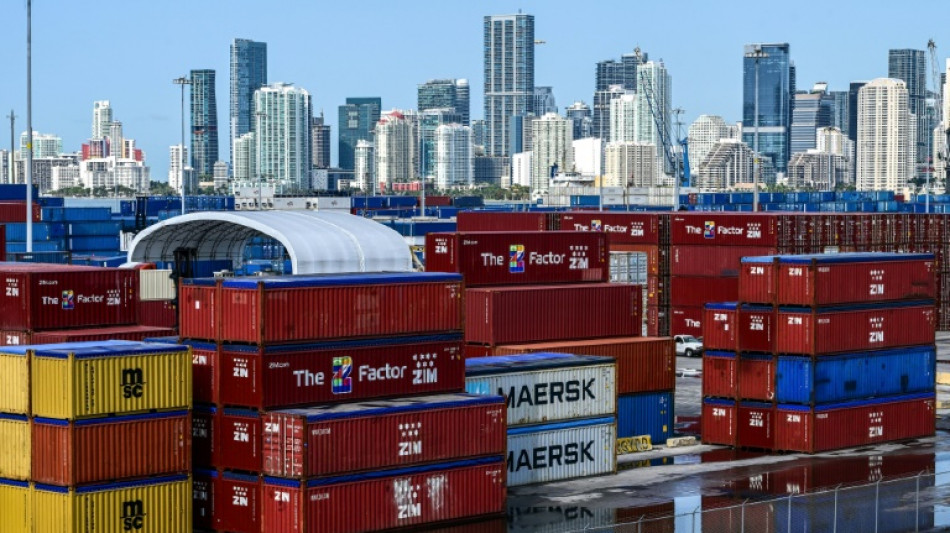
-
 Nawaz sparks Pakistan to five-wicket ODI win over West Indies
Nawaz sparks Pakistan to five-wicket ODI win over West Indies
-
Lions' Norris hospitalized after scary injury, NFL pre-season game suspended

-
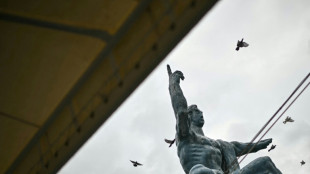 Restored Nagasaki bell rings in 80 years since A-bomb
Restored Nagasaki bell rings in 80 years since A-bomb
-
Putin-Trump summit: what we know so far
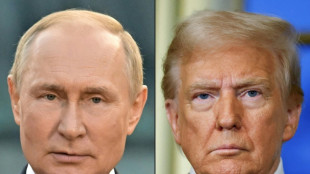
-
 Australia settle on Marsh and Head as T20 openers
Australia settle on Marsh and Head as T20 openers
-
New York declares total war on prolific rat population

-
 Patriots unveil statue honoring iconic quarterback Tom Brady
Patriots unveil statue honoring iconic quarterback Tom Brady
-
Slot's new-look Liverpool under the spotlight in Community Shield

-
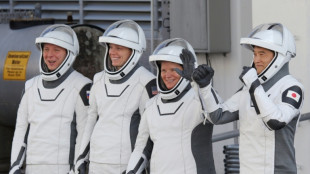 Five astronauts leave space station for trip back to Earth
Five astronauts leave space station for trip back to Earth
-
Trump and Putin to meet in Alaska next Friday
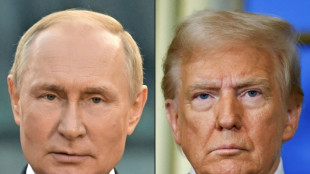
-
 NBA to open season with blockbuster showdowns: report
NBA to open season with blockbuster showdowns: report
-
Brazil's Lula vetoes parts of environmental 'devastation bill'

-
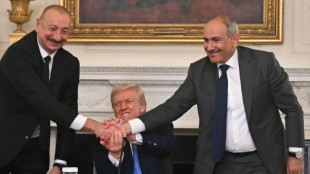 Trump says Armenia, Azerbaijan commit to end fighting 'forever'
Trump says Armenia, Azerbaijan commit to end fighting 'forever'
-
Toronto champion Shelton to start Cincy against Argentine outsider

-
 US astronaut Jim Lovell, commander of Apollo 13, dead at 97
US astronaut Jim Lovell, commander of Apollo 13, dead at 97
-
Trump says to meet Putin next Friday in Alaska
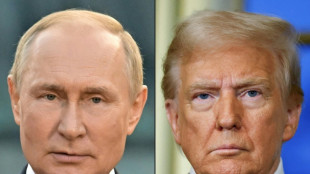
-
 Fire extinguished, historic mosque-cathedral in southern Spain 'saved'
Fire extinguished, historic mosque-cathedral in southern Spain 'saved'
-
Trump demands $1bn from University of California over UCLA protests

-
 Fire contained, historic mosque-cathedral in southern Spain 'saved'
Fire contained, historic mosque-cathedral in southern Spain 'saved'
-
US health chief based vaccine cuts on misinformation, researchers say
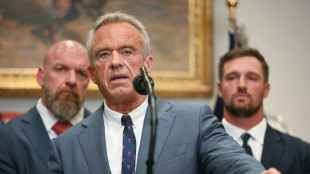
-
 US astronaut Jim Lovell, commander of imperiled Apollo 13, dead at 97
US astronaut Jim Lovell, commander of imperiled Apollo 13, dead at 97
-
Trump says will meet with Putin 'very shortly'
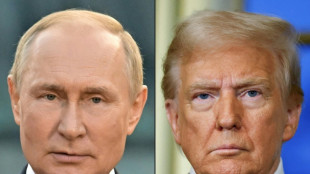
-
 Barcelona reinstate Ter Stegen as captain
Barcelona reinstate Ter Stegen as captain
-
Fleetwood leads St. Jude in search of first US PGA Tour title

-
 Gold futures hit record on US tariff shock; mixed day for stocks
Gold futures hit record on US tariff shock; mixed day for stocks
-
Trump says Armenia, Azerbaijan committed to end fighting 'forever'
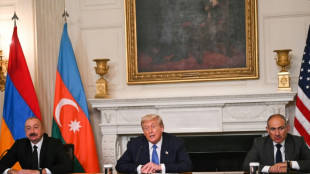
-
 England's injured Woakes still has Ashes hopes
England's injured Woakes still has Ashes hopes
-
US astronaut Jim Lovell, Apollo 13 commander, dead at 97

-
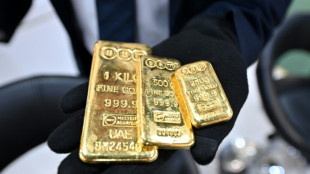 Swiss gold refining sector stung by US tariffs
Swiss gold refining sector stung by US tariffs
-
New Instagram location sharing feature sparks privacy fears

-
 Spain's Badosa withdraws from US Open
Spain's Badosa withdraws from US Open
-
Mexico seeks compensation from Adidas in cultural appropriation row

-
 NBA Celtics sign Mazzulla to coaching contract extension
NBA Celtics sign Mazzulla to coaching contract extension
-
Swiss gold refining sector hits US tariff mine
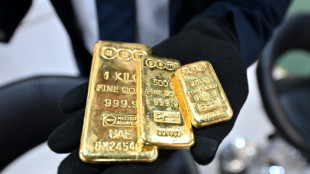
-
 Ter Stegen responds after Barcelona strips him of captaincy
Ter Stegen responds after Barcelona strips him of captaincy
-
Chelsea's Broja joins Burnley on five-year deal

-
 Three centurions as 'ruthless' New Zealand pile on runs against Zimbabwe
Three centurions as 'ruthless' New Zealand pile on runs against Zimbabwe
-
Three die in Greece as gales stoke fires, disrupt ferries
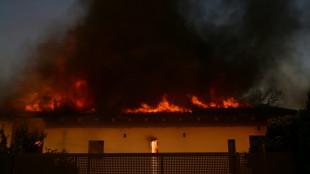
-
 ICC unseals Libya war crimes warrant for militia officer
ICC unseals Libya war crimes warrant for militia officer
-
Montreal protagonists Mboko, Osaka out of Cincinnati Open

-
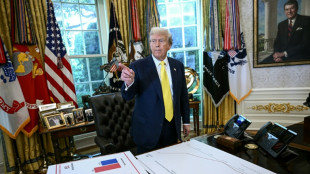 Trump says court halt of tariffs would cause 'Great Depression'
Trump says court halt of tariffs would cause 'Great Depression'
-
Glasner says demotion to Conference League would punish 'innocent' Palace

-
 New Zealand build big total in 2nd Test against Zimbabwe
New Zealand build big total in 2nd Test against Zimbabwe
-
Trump hosts foes Armenia, Azerbaijan in his latest peace initiative

-
 Nigerian scientists await return of Egusi seeds sent to space
Nigerian scientists await return of Egusi seeds sent to space
-
Pioneer spirit drives Swiss solar-powered plane altitude attempt

-
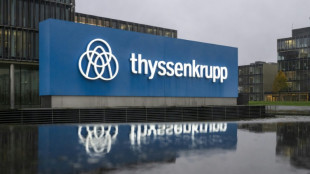 Thyssenkrupp to spin off marine division amid defence boom
Thyssenkrupp to spin off marine division amid defence boom
-
Vance and Lammy talk Gaza, fish as US VP starts UK holiday

-
 Israel plans to 'take control' of Gaza City, sparking wave of criticism
Israel plans to 'take control' of Gaza City, sparking wave of criticism
-
Putin taps key allies ahead of Trump summit, sanctions deadline
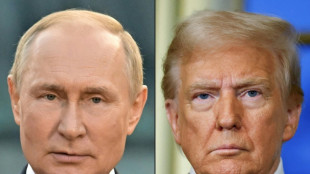
| RBGPF | 1.7% | 73.08 | $ | |
| CMSD | 0.25% | 23.58 | $ | |
| JRI | 0.19% | 13.435 | $ | |
| BCC | -1.34% | 82.09 | $ | |
| SCS | -0.76% | 15.88 | $ | |
| NGG | -1.51% | 71.01 | $ | |
| BCE | 2.34% | 24.35 | $ | |
| RIO | 1.76% | 61.86 | $ | |
| SCU | 0% | 12.72 | $ | |
| RELX | -2.2% | 48 | $ | |
| GSK | 0.58% | 37.8 | $ | |
| RYCEF | -0.14% | 14.42 | $ | |
| VOD | 0.88% | 11.36 | $ | |
| BTI | 0.96% | 57.24 | $ | |
| CMSC | 0.39% | 23.05 | $ | |
| AZN | -0.69% | 73.55 | $ | |
| BP | -0.15% | 34.14 | $ |

Trump trade war pushes firms to consider stockpiling
Stockpiling is the reflex response by firms to the imposition of tariffs, but with the rapidly-changing position of the Trump administration, companies are finding that it isn't so straightforward this time around.
Whether it's the luxury, electronics or pharmaceutical sectors, US President Donald Trump's unpredictability complicates the calculations of firms.
Some companies didn't wait for Trump's April 2 announcement of massive "reciprocal" trade tariffs: they had already begun shipping more of their goods to the United States.
In the end, Trump backed down quickly on the "reciprocal" tariffs, pausing them for 90 days except for China.
That still left the global 10 percent tariff in place, as well as the 25 percent tariffs on European steel, aluminium and cars.
French cosmetics firm Clarins didn't hesitate and stepped up shipments to the United States at the beginning of the year.
"We've built up three months of stocks, which represents $2 million in goods," said Lionel Uzan, the head of Clarins's US operations.
With all of its products made in France, Clarins had few other options to mitigate the tariffs.
- Discreet stockpiling -
Even if they don't all acknowledge it so openly, firms in many different sectors are stockpiling their products in the United States.
In March, exports of Swiss watches to the United States jumped nearly 14 percent compared to the same month last year.
More striking is Ireland, which plays host to a number of international pharmaceutical firms.
Its exports to the United States jumped 210 percent in February to nearly 13 billion euros ($14.8 billion), with 90 percent of those being pharmaceutical products and chemical ingredients.
Fermob, a French manufacturer of metal garden furniture that sells around 10 percent of its products in the United States, said it began planning for US tariffs once the result of the presidential election became known in November.
It stepped up production in January and February.
"We've sent around 30 percent of our extra stock to the United States," said the company's chief executive, Baptiste Reybier.
That extra production has benefitted transportation firms.
Lufthansa Cargo said it has seen in recent weeks "an increase in demand for shipments to the United States".
The trade war "has incited companies to accelerate certain stages in their supply chains", it told AFP.
"A similar trend was seen for the delivery of cars from the EU to the United States," it said.
The phenomenon also concerns US-made goods.
The Japanese newspaper Nikkei reported recently that Chinese tech firms were snapping up billions of dollars of artificial intelligence chips made by US firm Nvidia in anticipation of Washington imposing export restrictions.
- 'Short-term approach' -
Stockpiling is not a solution, however, said analysts.
Matt Jochim, a partner at consulting firm McKinsey who helps companies with supply chain issues, called stockpiling "a very short-term opportunistic" move.
He said the practice has limits as tariffs are constantly changing and it isn't always practicable.
"In a lot of the electronics space, it's also hard to do, because the technology changes so quickly, you don't want to get stuck with inventory of chipsets or devices that are the prior version," he said.
Fermob said it was taking a measured approach to stockpiling.
"Otherwise you're replacing one risk with another," the manufacturer's Reybier said.
"You have to finance stocks and there is also the risk of not having sent the right product."
Having a local subsidiary with warehouses also helped, Reybier added.
"It's too early to say whether we should have sent more or not."
V.AbuAwwad--SF-PST
